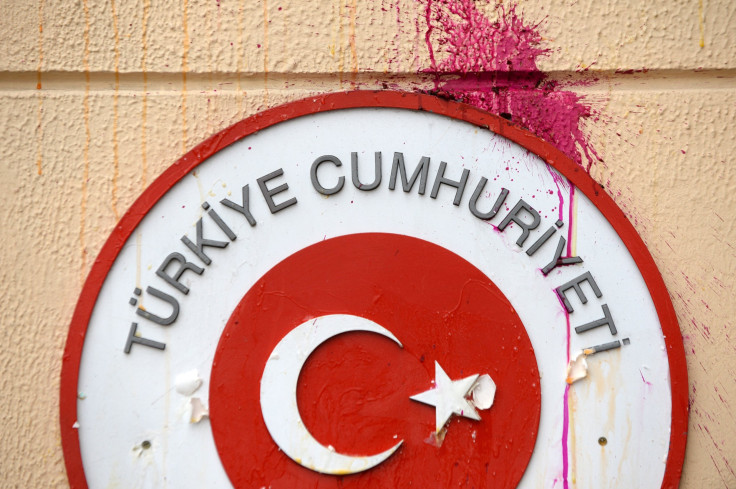Turkey Asks Citizens To Avoid Traveling To Russia; Erdogan Expresses Regrets Over Jet Downing

Turkey on Saturday issued a travel warning to its citizens, asking them to avoid all non-urgent travel to Russia, as diplomatic tension between the two countries escalates over the downing of a Russian jet by Turkey earlier this week.
The Turkish foreign ministry reportedly said in a statement that, following the difficulties faced by Turkish visitors in Russia, it has advised its citizens to postpone travel plans until "the situation becomes clear."
Russian President Vladimir Putin wants an apology from Turkish President Tayyip Erdogan before any talks to resolve the issue begin. On Saturday, Erdogan expressed his regrets but stopped short of an apology. "We wish it hadn't happened, but it happened. I hope something like this doesn't happen again," he reportedly said.
Erdogan again defended his country's action and criticized Russia for its action in Syria.
Turkey's move comes on the heels of a Moscow directive Friday suspending its visa-free travel agreement with Turkey.
Russia has been preparing to sever economic ties and joint projects with Turkey after the Turkish air force shot down one of Russia’s SU-24 fighter jets near the Syrian province of Latakia on Tuesday.
Russia has also tightened its controls on Turkish food imports, announcing that about 15 percent of the imports were not up to Russian food safety standards.
Russia imports about 20 percent of its fruits and vegetables from Turkey, while Turkey is one of the largest buyers of Russia’s natural gas and oil. These restrictions might also apply to a multibillion-dollar deal to build a gas pipeline through Turkey, which was finalized in December 2014.
© Copyright IBTimes 2024. All rights reserved.





















